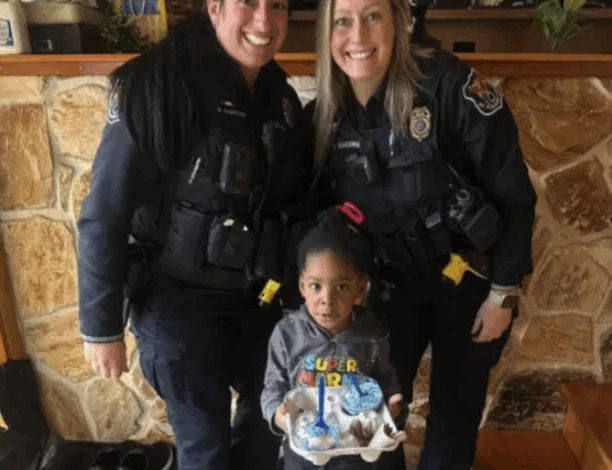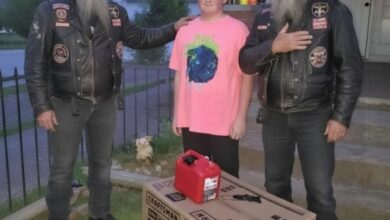
The Ice Cream Emergency
The four-year-old called the police. Not because he was in danger. Not because something was wrong in the traditional sense. But because, in his world, something catastrophic had happened. Something that required immediate intervention from authorities.
His mother had eaten his ice cream.
From an adult perspective, this is absurd. Ridiculous. The kind of thing that makes you laugh before you even finish hearing the story. Ice cream is not an emergency. A mother eating her child’s dessert is not a crime. This is not a matter for police involvement.
But from the perspective of a four-year-old, this was a devastating betrayal of trust. He had ice cream. He was probably saving it, thinking about it, looking forward to it. And then his mother—the person who’s supposed to protect his interests—ate it. All of it. Without permission. Without consideration for his feelings.
In his four-year-old understanding of justice, this required accountability. Someone needed to know that his mother had done something wrong. Someone needed to make it right.
So he called 911. Twelve thousand times. Or, more likely, he kept pressing buttons until someone answered, and those buttons happened to connect to emergency dispatch twelve thousand times because he didn’t understand how phones work and was operating purely on desperate determination.
When the police finally arrived—because eventually, with that many calls, they have to investigate—he was ready. He had his case prepared. He told them, with the absolute certainty of someone who believes they’ve been wronged, that his mother is a bad person and should go to prison. Because she ate his ice cream. And people who do bad things go to prison. That’s how justice works in the world of a four-year-old.
The officers, to their immense credit, didn’t laugh at him. At least not where he could see. Instead, they asked him why his mother should go to prison.
His answer was both heartbreaking and hilarious: “She ate all my ice cream, and they should take her to prison and she’d be in jail now.”
The logic is flawless within his framework. Crime committed. Culprit identified. Punishment deserved. He’d done everything right according to his understanding of how the world works.
The police could have lectured him about appropriate use of emergency services. Could have been stern about wasting their time. Could have made this a scary experience that taught him never to call them again.
Instead, they solved the problem. They brought him ice cream. Replaced what had been taken. Restored justice to his universe. And in doing so, they gave him something more important than dessert—they gave him the experience of being heard, of having his feelings validated even when the adults around him thought they were silly.
His mother probably wanted to sink through the floor. Equal parts mortified that her son called the police over ice cream and amused by the absurdity of the situation. Equal parts apologetic to the officers and exasperated with her very dramatic child.
But here’s what’s beautiful about this story: everyone handled it with grace. The child, operating with the tools and understanding available to him, sought help when he felt wronged. The police, who could have been annoyed or dismissive, chose to meet him where he was and solve his problem. The mother, who could have been angry at being called a criminal by her four-year-old, probably found the humor in it after the initial shock wore off.
Because this story isn’t really about ice cream. It’s about how we respond to each other’s distress, even when that distress seems disproportionate to us. It’s about taking people seriously, especially children, even when their problems seem trivial from an adult perspective.
To a four-year-old, losing his ice cream wasn’t trivial. It was a genuine crisis. His response—calling the police twelve thousand times—was the only solution his developing brain could conceive. He didn’t understand nuance yet. Didn’t understand that police are for emergencies that involve danger, not dessert-related disappointments.
He just knew something wrong had happened, and someone needed to fix it.
The officers who showed up could have made this a lesson in consequences. Could have frightened him with the seriousness of misusing emergency services. Could have made him cry for different reasons.
Instead, they brought ice cream. They turned a moment of childhood frustration into a moment of childhood joy. They showed him that when you need help, people will come. And sometimes, they’ll bring ice cream.
The photo shows them standing with the boy, all of them smiling. He’s holding his ice cream—justice restored, universe balanced, faith in authority confirmed. The officers look genuinely happy to have solved this particular “emergency.” His mother looks relieved that this bizarre situation resolved without trauma or actual legal consequences.
It’s a moment of pure humanity. Adults bending down to a child’s level, literally and figuratively. Taking his concerns seriously enough to address them while gently teaching him that there are better ways to handle ice cream-related grievances.
Years from now, this boy will remember the day he called the police on his mother. He’ll laugh at his four-year-old logic. He’ll understand, with the perspective of maturity, that ice cream doesn’t warrant twelve thousand emergency calls.
But he’ll also remember that when he felt wronged, even though his problem seemed silly to adults, people showed up for him. They listened. They cared. They brought ice cream.
And maybe that’s the lesson that will stick longest. Not that you shouldn’t call 911 over dessert disputes. But that people can be kind, that problems can be solved, that even when you mess up or overreact, grace is available.
His mother forgave him. How could she not? He’s four. The police brought him ice cream. Justice was served, literally and metaphorically.
And somewhere in that interaction, everyone involved remembered what it’s like to be small and powerless and convinced that the loss of something sweet is the worst thing that could happen.
They met him there. They took him seriously. They brought ice cream.
Sometimes that’s all it takes to restore faith in justice.




